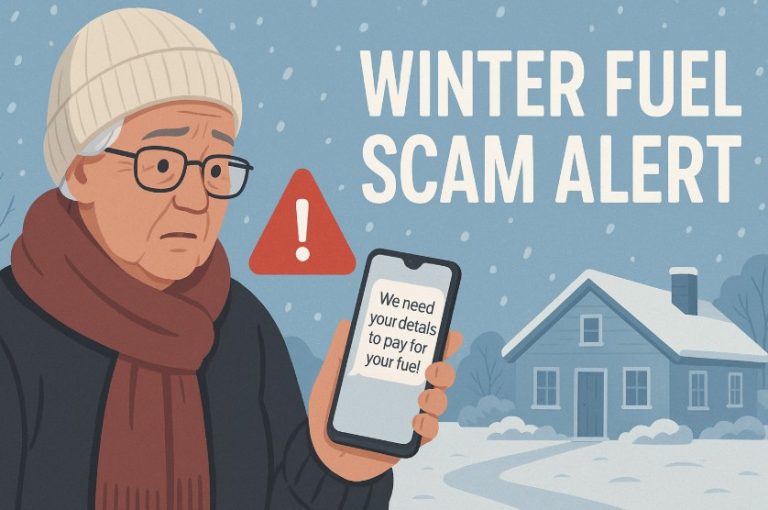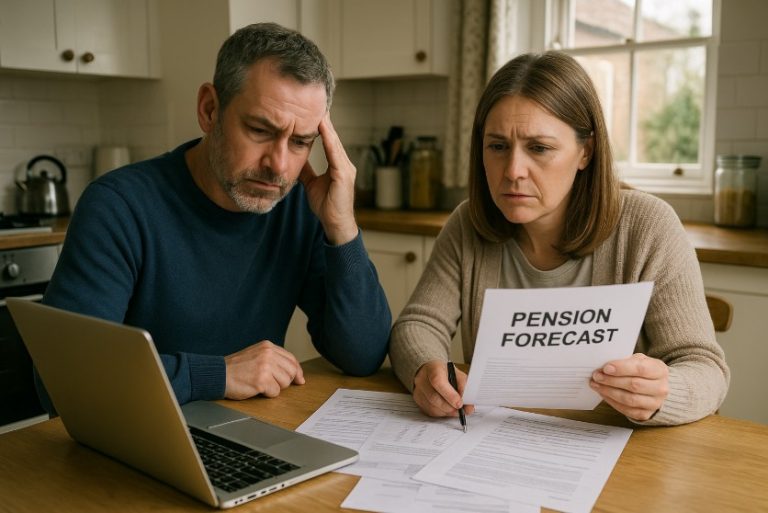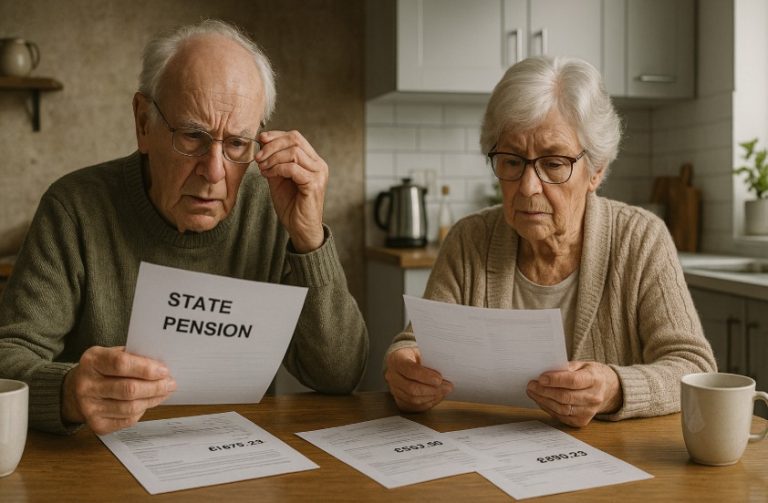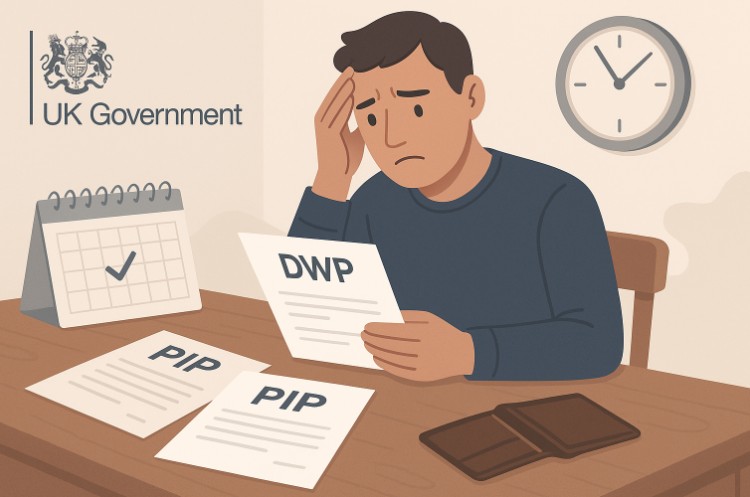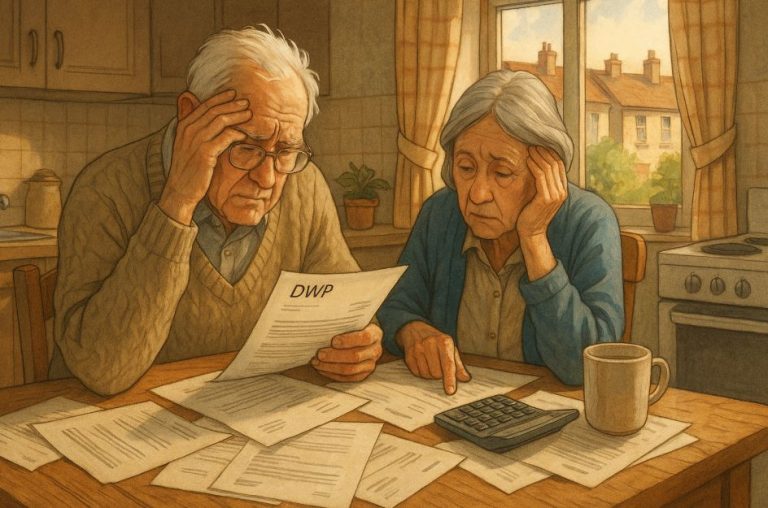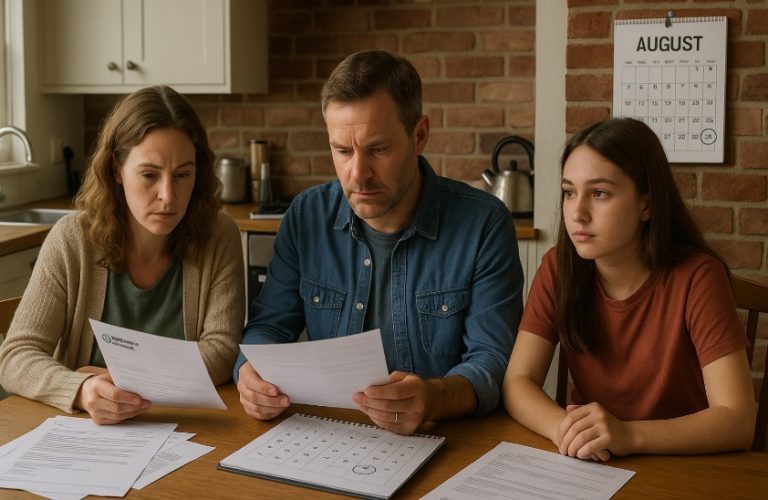Television remains an essential part of daily life for many pensioners in the UK. From staying updated with the news to enjoying entertainment, having a TV can significantly enhance the quality of life for older adults.
However, with the cost of living continuing to rise, affording a TV licence can become a burden for many.
Fortunately, there are schemes in place that offer free or discounted TV licences for eligible pensioners. This guide explores who qualifies, how to apply, and what support is available.
Who Qualifies For A Free TV Licence In The UK?
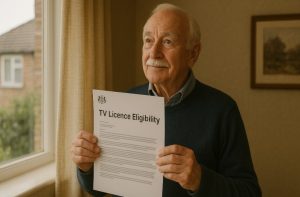
In the UK, a free TV licence is available to individuals aged 75 or over, provided they are receiving Pension Credit.
This benefit is not automatically granted upon turning 75. To receive the concession, the individual must either:
- Be 75 or older and in receipt of Pension Credit
- Live with a partner who receives Pension Credit
If these conditions are met, the TV licence is free and covers everyone living at the same address.
Applications can be submitted once an individual turns 74. This early application ensures the licence activates as soon as the individual reaches the qualifying age, but they must continue paying the standard licence fee until the end of the month before their 75th birthday.
This benefit not only reduces household expenses but also supports pensioners in maintaining access to broadcast media for information and leisure.
How Do Pensioners Apply For A Free TV Licence?
The application process for a free TV licence is straightforward and accessible both online and by phone.
Applicants will need to provide personal identification and proof of eligibility, such as their National Insurance number and documentation confirming their Pension Credit status.
Application Options:
- Online: Through the official TV Licensing website. The online portal guides users step by step.
- By Phone: For those who may need assistance or prefer verbal communication.
TV Licensing Contact Numbers:
| Contact Type | Number |
| Telephone | 0300 790 6071 |
| Minicom | 0300 790 6050 |
Once processed and approved, the licence will remain free for as long as the applicant meets the eligibility criteria.
Automatic renewals typically occur annually, and TV Licensing may request updated benefit information to confirm continued eligibility.
What Are The Discounted TV Licence Options For Blind Pensioners?
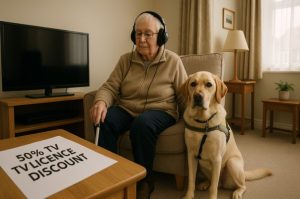
Television serves as a vital source of information, entertainment, and connection for people across the UK, particularly for those with disabilities.
For individuals who are registered blind, the UK Government provides a significant concession on the annual TV licence fee.
This support aims to ease the financial pressure on those who may already face additional living costs due to disability, ensuring equal access to media and public broadcasting services.
Who Is Eligible for the Blind Person’s Discount?
To qualify for the 50% discount, the individual must be certified as severely sight impaired (previously known as “blind”) by an ophthalmologist or eye specialist.
This status must be officially recognised and registered with a local authority. The discount can also apply if:
- The registered blind person lives alone or with others
- The TV licence is issued in the name of the blind person
- The property being covered is the blind person’s primary residence
In cases where the TV licence is currently under a different name, such as a spouse or relative, it must be transferred to the blind person to make use of the concession. This can be done by contacting TV Licensing directly, and it’s a relatively simple administrative process.
How Much Is the Discount?
The standard annual fee for a colour TV licence in the UK is £169.50. With the 50% blind person’s discount, this is reduced to £84.75 per year.
For those who still own a black-and-white television (though rare), the cost is reduced to £28.50, down from the standard £57.00.
This reduction applies only to one TV licence per household, and it must be for the home where the registered blind person lives.
Even if others in the home are not disabled, the discount still applies as long as the qualifying person is the licence holder.
Documentation and Proof Required
When applying for this discount, applicants must provide:
- A Certificate of Visual Impairment (CVI) or BD8 form, confirming they are registered blind
- Their TV licence account number, if already licensed under another name
- Identification that matches the name of the registered individual
This documentation helps TV Licensing verify the applicant’s eligibility and ensure that the discount is applied correctly and only to those who qualify.
Can Carers or Family Members Benefit?
While the discount is tied to the blind individual, everyone living in the household is covered under that licence.
However, carers or relatives cannot use the discount to obtain a reduced licence at a different address or in their own name unless they also meet the qualifying criteria.
This means that if the blind person lives with their family, the entire household benefits from the reduced fee, as long as the licence is registered to them.
Renewal and Duration of the Discount
The blind person’s discount typically remains valid as long as the individual continues to live at the same address and maintains their registered blind status.
TV Licensing may occasionally request updated proof or confirmation, especially if circumstances change (such as a change of address or household composition).
Renewals can usually be processed automatically each year once the initial eligibility is confirmed, minimising hassle for the licence holder.
Are There TV Licence Discounts For Pensioners In Residential Care?
Pensioners residing in residential care homes, supported housing, or sheltered accommodation may qualify for a special licence at a significantly reduced rate of £7.50 per year. This support is available to individuals who meet at least one of the following conditions:
- Retired and aged 60 or over
- Living with a disability
The discount is part of the Accommodation for Residential Care (ARC) scheme. However, eligibility is tied not just to the individual but also to the facility. The care home or accommodation must be an approved establishment listed with TV Licensing.
Application Process:
- The care home or housing manager is responsible for assessing eligibility
- If the facility qualifies, the manager will apply on behalf of the resident
- No direct application is needed from the pensioner
This reduced fee ensures that pensioners in care settings have continued access to television without facing financial strain.
What Is Pension Credit And How Does It Affect TV Licence Eligibility?

Pension Credit is a benefit available to older adults on low incomes. It plays a crucial role in determining eligibility for a free TV licence. There are two parts to Pension Credit:
- Guarantee Credit: Tops up weekly income to a minimum level
- Savings Credit: Available to those who have saved money towards retirement (only for those who reached State Pension age before 6 April 2016)
To qualify for a free TV licence, an individual must receive Guarantee Credit, either alone or alongside Savings Credit. Importantly, many pensioners do not realise they qualify for Pension Credit and therefore miss out on the associated benefits.
Benefits of Receiving Pension Credit Include:
- Free TV licence at age 75 and over
- Help with housing costs
- Council tax reduction
- Cold weather payments
It is recommended that pensioners use the government’s online Pension Credit calculator to assess their eligibility. Applications can be submitted online or by calling the Pension Credit claim line.
What Should Pensioners Know About Renewing Or Maintaining A Concession?
Once a concessionary licence has been granted, whether free or discounted, it usually remains valid as long as the qualifying conditions are met. However, it is the responsibility of the licence holder or their representative to keep their records updated.
Key considerations include:
- Informing TV Licensing of any change in benefits or residency
- Ensuring the licence remains in the name of the qualifying individual
- Responding to requests for evidence of continued eligibility
For pensioners in care homes, housing managers typically handle renewals. For blind pensioners and those receiving Pension Credit, annual renewals may involve submitting up-to-date benefit information.
TV Licensing may contact individuals to confirm details. Prompt response helps avoid disruptions in coverage or unexpected charges.
What Are Common Misconceptions About The Pensioners’ TV Licence?
Several misconceptions exist around TV licence entitlements for pensioners, often leading to missed benefits or confusion:
- Turning 75 does not automatically grant a free licence. The individual must also be in receipt of Pension Credit or live with someone who is.
- Only the person receiving Pension Credit qualifies for the concession, but the free licence will cover everyone at the same address.
- Blind person discounts are not applied unless the licence is in their name. Living with a blind person does not qualify others unless the name is transferred.
- Care home residents do not automatically qualify. The residential facility must be approved, and the application must go through the housing manager.
These misunderstandings can result in incorrect payments or unclaimed entitlements. It is important to verify information through official channels such as TV Licensing or GOV.UK.
How Does The TV Licence Discount Support Pensioners Financially?
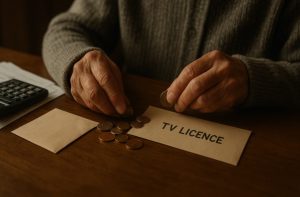
For pensioners living on fixed or limited incomes, even modest savings can make a significant difference in their overall financial well-being.
The TV licence, a mandatory requirement for watching or recording live television broadcasts or using BBC iPlayer in the UK, is an annual expense that may be difficult for many older adults to afford.
With the standard TV licence fee set at £169.50 per year, this cost can place unnecessary strain on pensioners who are already managing essential living expenses such as rent, utilities, food, and healthcare.
The TV licence discount schemes available to pensioners, including free licences for those aged 75 and over receiving Pension Credit, and discounted licences for blind individuals and residents in care homes, provide critical financial relief.
These schemes help ensure pensioners are not excluded from accessing news, entertainment, and educational programming due to economic hardship.
Financial Savings and Household Budget Impact
Here is a breakdown of how the available concessions can positively impact pensioners’ annual budgets:
| Licence Category | Annual Cost | Savings vs. Standard Licence |
| Standard Licence | £169.50 | N/A |
| Free Licence (75+ with Pension Credit) | £0.00 | £169.50 |
| Blind Person Discount (50% Off) | £84.75 | £84.75 |
| Residential Care Discount | £7.50 | £162.00 |
Even the smallest discount such as the £84.75 available to blind individuals, represents nearly a 50% reduction in this annual cost.
For those in care homes, the £7.50 fee is symbolic compared to the full price, recognising the unique financial circumstances faced by many elderly and disabled residents.
These savings can be reallocated towards other essential needs, such as:
- Heating and energy bills, especially during colder months
- Prescriptions or health-related products
- Transportation for medical appointments or social activities
- Nutritional food and household supplies
Reducing Digital and Social Exclusion
Beyond direct financial savings, the availability of TV licence discounts also plays a role in combating social and digital exclusion.
Television serves as a critical source of connection for pensioners, many of whom live alone or in isolated environments.
Programmes provide not only entertainment but also important news updates, access to public health messaging, and a sense of routine.
Without access to television, pensioners may face increased loneliness and disconnection from current events and society.
By making the licence more affordable, these schemes ensure that cost is not a barrier to basic media access.
Helping Pensioners Navigate the Cost of Living
In the current economic climate, many pensioners in the UK are feeling the effects of rising living costs.
With inflation affecting food, fuel, housing, and healthcare, the ability to reduce or eliminate the cost of a TV licence becomes even more valuable.
While the licence fee might seem small relative to other bills, it can make a meaningful difference when combined with other cost-saving measures, especially for those receiving Pension Credit.
By removing this expense entirely or significantly lowering it, the government enables pensioners to redirect limited resources toward more pressing or urgent needs, thus supporting a better quality of life.
Supporting Fairness and Inclusion
The TV licence discount system for pensioners also reflects a broader principle of fairness in access to public services. Television content, especially that provided by public broadcasters like the BBC, is intended for everyone.
Making this content accessible regardless of income or disability status ensures that pensioners are not unfairly excluded due to financial hardship.
Furthermore, the availability of these concessions acknowledges the long-standing contributions pensioners have made to society through work and taxation. It is a practical expression of respect and recognition for those in later stages of life.
Encouraging Take-Up of Other Benefits
An added financial advantage of the TV licence discount scheme is that it encourages pensioners to apply for other benefits, especially Pension Credit.
Many pensioners are unaware they qualify for Pension Credit, and the promise of a free TV licence acts as an incentive to explore entitlements. In doing so, they may also gain access to:
- Housing Benefit
- Council Tax Support
- Cold Weather Payments
- Help with NHS costs
By claiming these additional benefits, pensioners can further strengthen their financial position, making it easier to live with dignity and independence.
How Can Pensioners Check Their Eligibility Or Get Help?
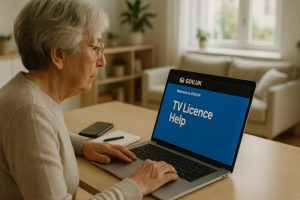
Checking eligibility and accessing assistance has been made straightforward by the authorities. Pensioners can explore their options using several tools and services:
- TV Licensing Website: Provides information on free and discounted licences, online application forms, and FAQs
- Pension Credit Calculator: Available on GOV.UK, helps individuals determine if they qualify for Pension Credit
- Telephone Support: TV Licensing and DWP staff can guide pensioners through the process
- Housing and Care Managers: In care settings, staff usually facilitate applications and renewals
Those unsure about their eligibility should not hesitate to reach out, as missing out on available support could mean unnecessary expenses.
Conclusion
The TV licence scheme offers vital financial relief for eligible pensioners in the UK. Whether through full exemptions or significant discounts, these concessions ensure that older individuals can maintain access to television without undue financial pressure.
Understanding who qualifies, how to apply, and what support exists can make a meaningful difference. For those eligible, applying early and staying informed can help secure this essential benefit.
FAQs
What is the current cost of a TV licence in the UK?
The current standard TV licence costs £169.50 per year for colour and £57.00 for black and white.
Can I apply for a free TV licence before I turn 75?
Yes, if you receive Pension Credit, you can apply when you are 74. The free licence will start from your 75th birthday.
Is a blind person’s discount automatically applied?
No, you must apply and ensure the TV licence is registered in the name of the person who is blind.
What if I stop receiving Pension Credit after getting a free licence?
You must inform TV Licensing. If you no longer qualify, you may need to pay the full fee again.
Can couples get a free TV licence if only one receives Pension Credit?
Yes, if one person in a couple receives Pension Credit and they live together, the free licence applies to the household.
How do I transfer my TV licence to a blind relative?
You can contact TV Licensing with the current licence number and supporting documents to make the transfer.
What happens if I move into a care home after getting a free licence?
If you move into an eligible care facility, you may switch to a discounted residential TV licence of £7.50. Your housing manager will help with the application.

